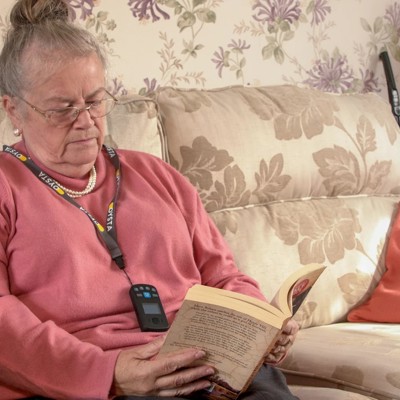Local Authority rolls out successful pilot project with Access TEC - Case Study
Steering a pilot project to improve response time and care focus for overnight care, Access TEC joined forces with a Local Authority in the Midlands.
Working in partnership with emergency and short-term providers, the pilot project investigated the impact and the benefits of mobile telecare technology for vulnerable individuals living independently.

The problem
Looking for a way to improve the efficiency of hospital discharge for recovered individuals in the region, the Local Authority wanted to be able to better support individuals in their recovery at home in partnership with a care provider. The aim of the pilot project was to monitor the difference in care quality, service delivery, client satisfaction and budget spend when telecare technology was employed. At the end of the pilot, each factor would be measured, for conclusions to be drawn.
The solution
Five telecare devices were to be deployed to VIPs. Choosing the correct telecare solution was vital, as fair results would depend on the correct and consistent use of the device by each VIP.
Selecting Access TEC for the pilot, Mario Zuccaro Founder of Oysta Technology now part of Access TEC said:
"Designed in collaboration with individuals’ needs and preferences, Access TEC is simple to use and it includes all of the functionality that we were told was needed by a VIP: fall sensor, SOS alert, GPS functionality, loudspeaker and connection to a real person should a crisis occur. We were confident that the people within the pilot would adopt the device and would be happy to use it every day. We were right.”
“Perfect for this project, Access TEC holds within it powerful technology that provides vital insight on each individual, for care management teams. Connected to our Device Management Platform, the data enables the individual to be quickly located and assisted no matter what their geographical location. Alerting multiple agencies and people within the care network to any falls, alerts or SOS triggers, data can be refined to allow Carers to understand patterns of behaviour for individuals. This allows service provision to be targeted and proactive action to be taken should data flag any trends.”
The project
As well as making their usual home visits, Carers from the care providing organisation, monitored the data gathered via our Access TEC devices, enabling them to make key decisions based on the management information on our Device Management Platform dashboard.
As the Pilot project rolled out, it became apparent very quickly, that this project was able to positively change the way that the care service could be delivered.
Once where it was usual for two senior carers to spend all night with individuals, the scenario changed significantly when the individual could press the button on the device, to request assistance.
With Carers able to access live, 24/7 well-being and management information via our Device Management Platform, two Carers were subsequently able to visit between fifteen to twenty individuals per night, quickly providing care when it is needed or enabling VIPs to get a good night’s rest when it isn’t. The Care staff now do four planned care calls per night, with two senior Carers now free to focus on those with higher needs.
The outcome
Seeing the immediate effects that the five Access TEC devices were providing, the pilot project quickly expanded to ten and then fifteen devices, with the duration of the project also being extended. Creating a more effective and efficient service that was providing a model of support preferred by the individuals that were involved, referrals from hospital discharge teams also began to increase. An increase that was comfortably absorbed by the care provision organisation, with the help of our telecare solutions
The pilot project showed that significant savings could be made both on time and also on cost. Being able to care and support individuals more effectively within their own homes, meant that a move to (and the associated cost) of residential or traditional overnight care was avoided.
Key Outcomes
- Improved service delivery
- Significant cost saving for the Local Authority
- A more efficient and effective workforce
- Increased referrals from hospital discharge teams
- Delivery of more targeted care
- Increase of Care capacity
- Overnight Care costs per person slashed
Discover how we can replicate the same success in your local authority be contacting us today.


 AU & NZ
AU & NZ
 SG
SG
 MY
MY
 US
US
 IE
IE